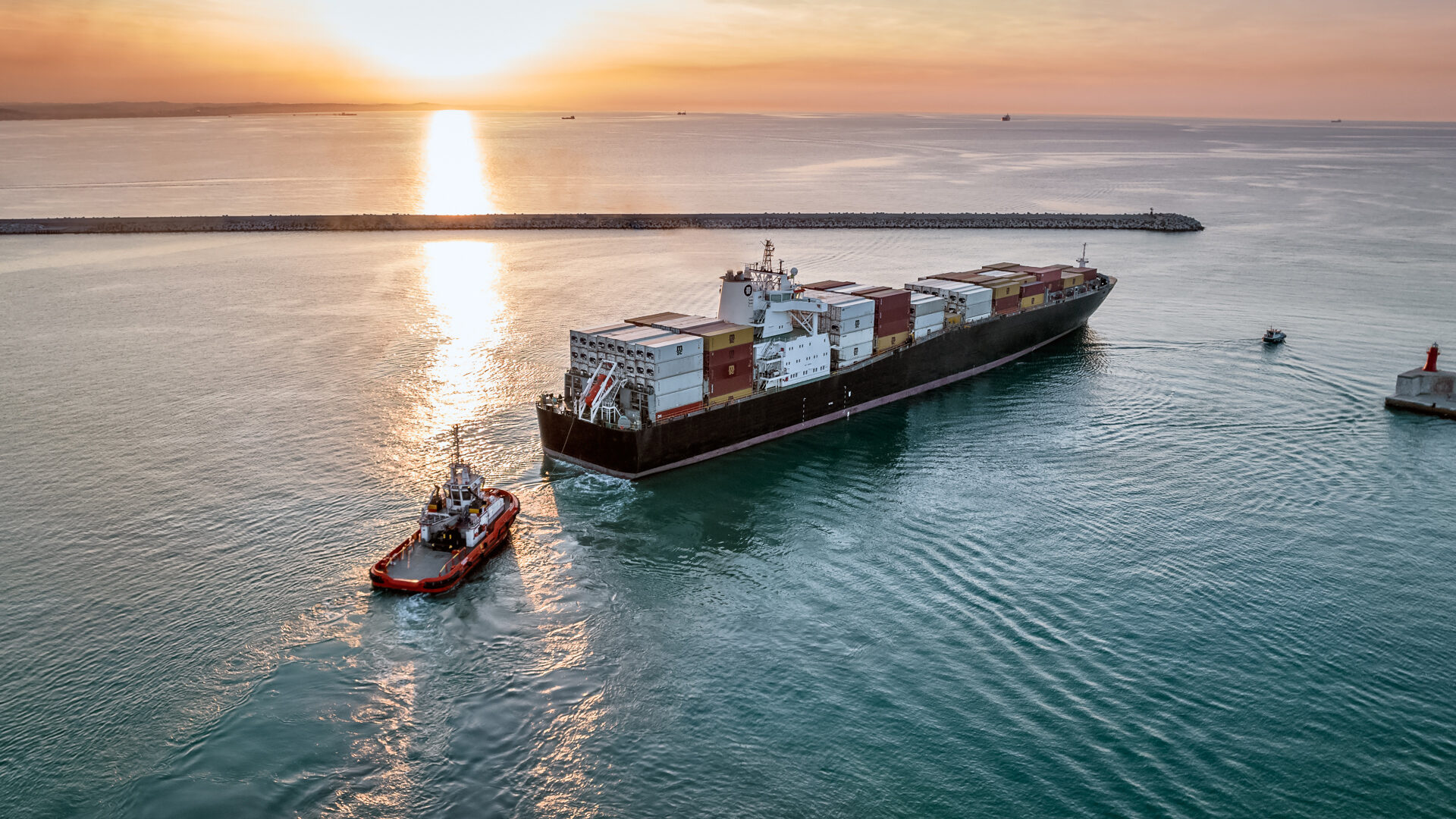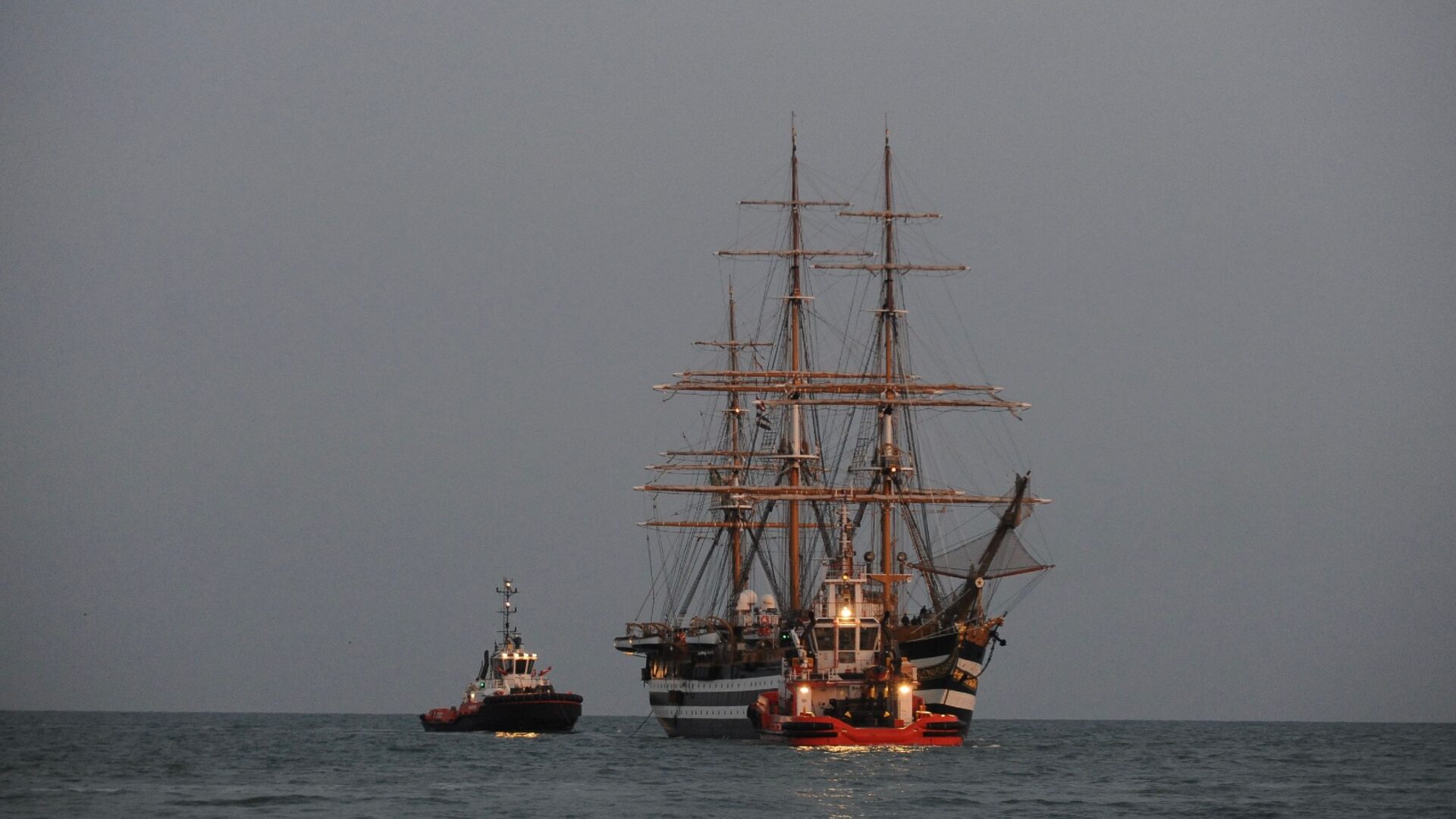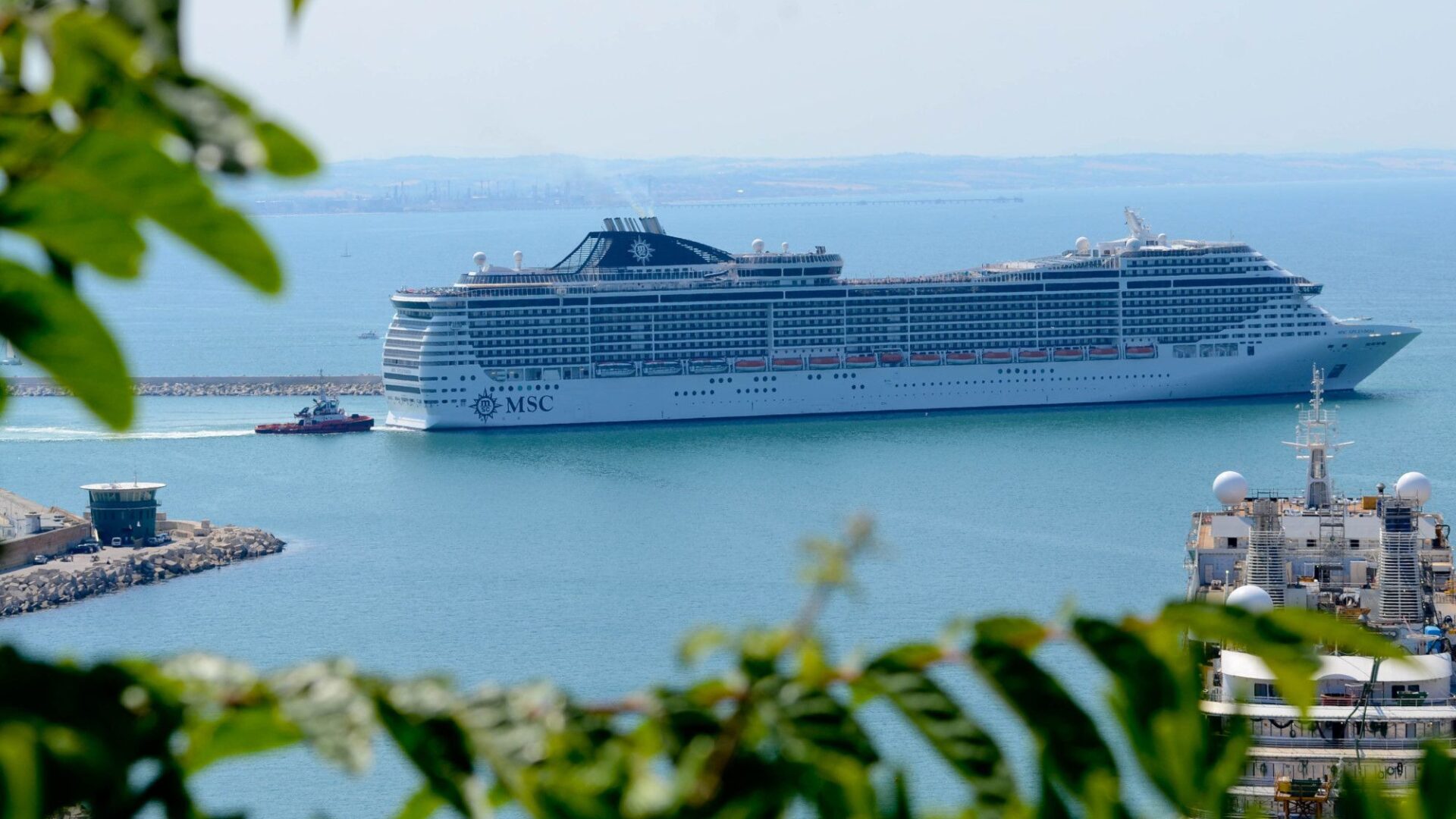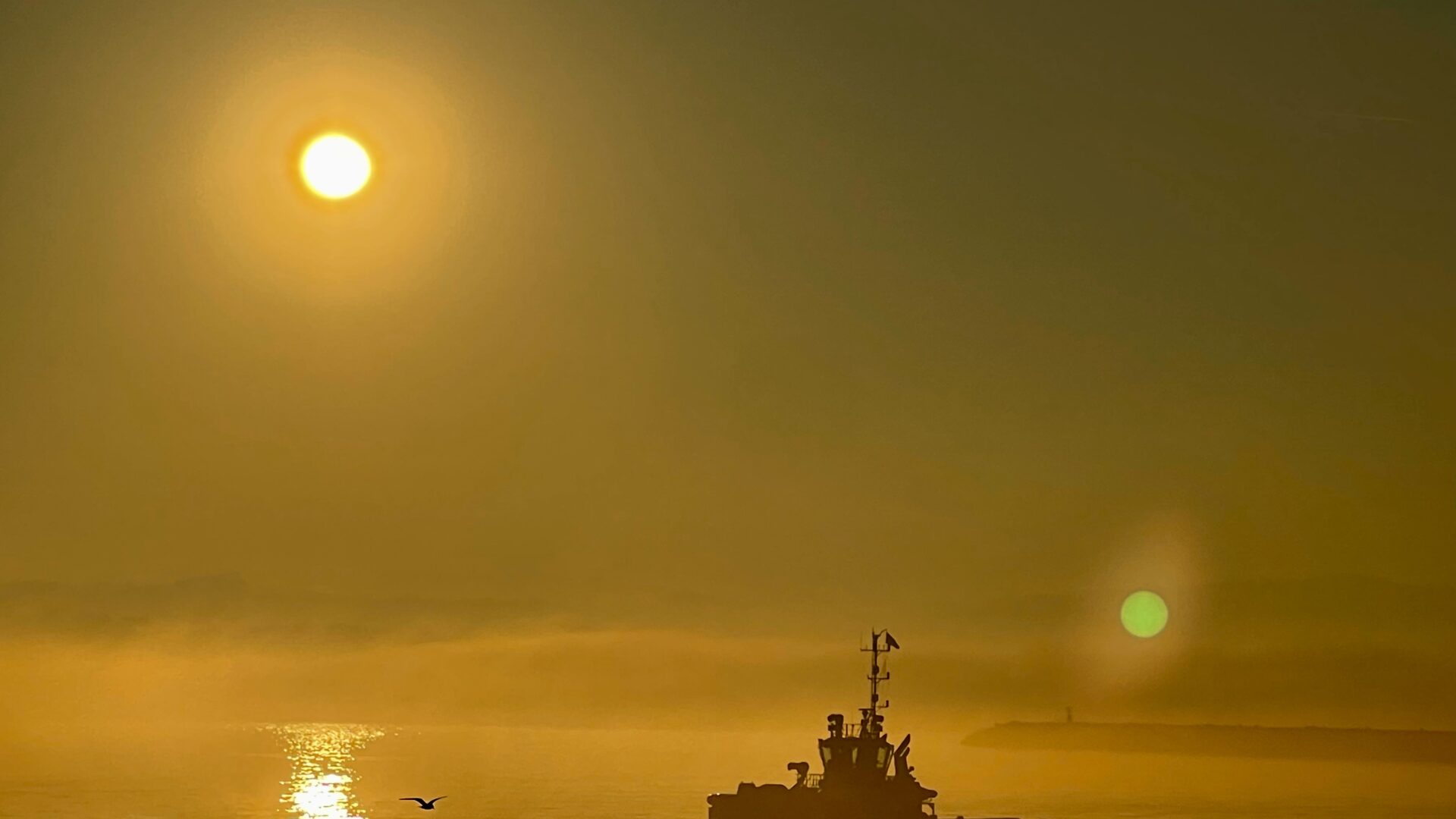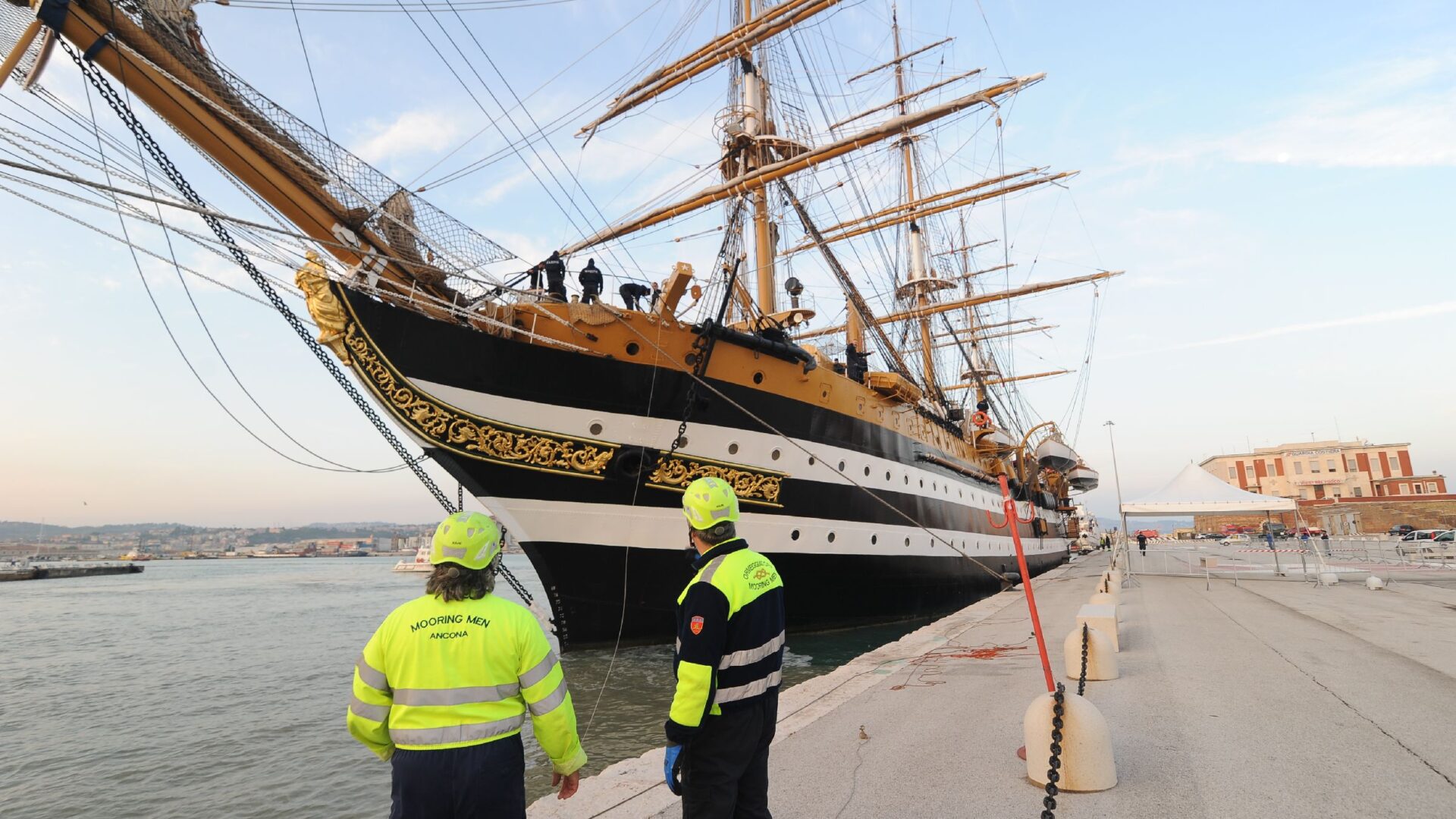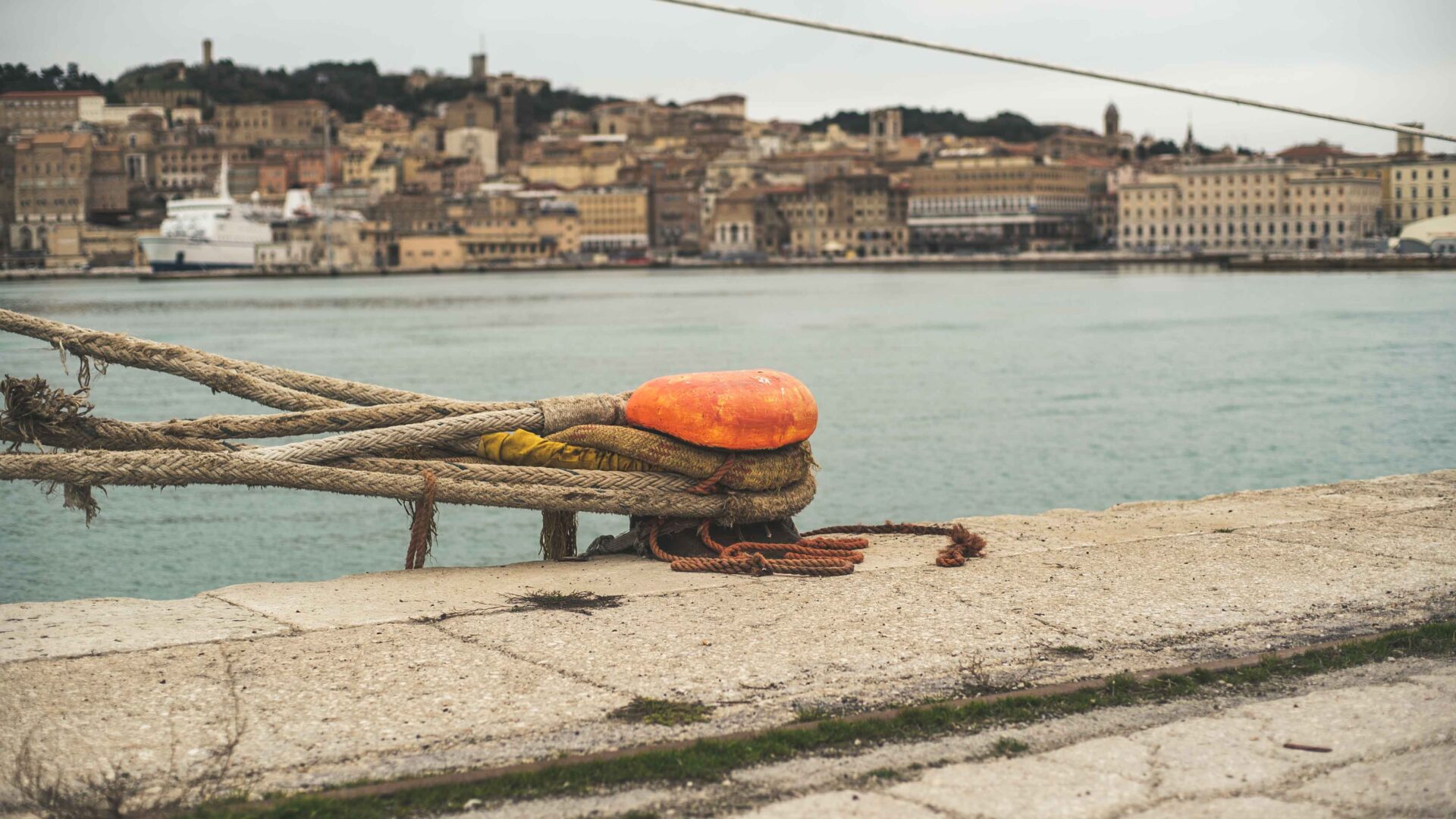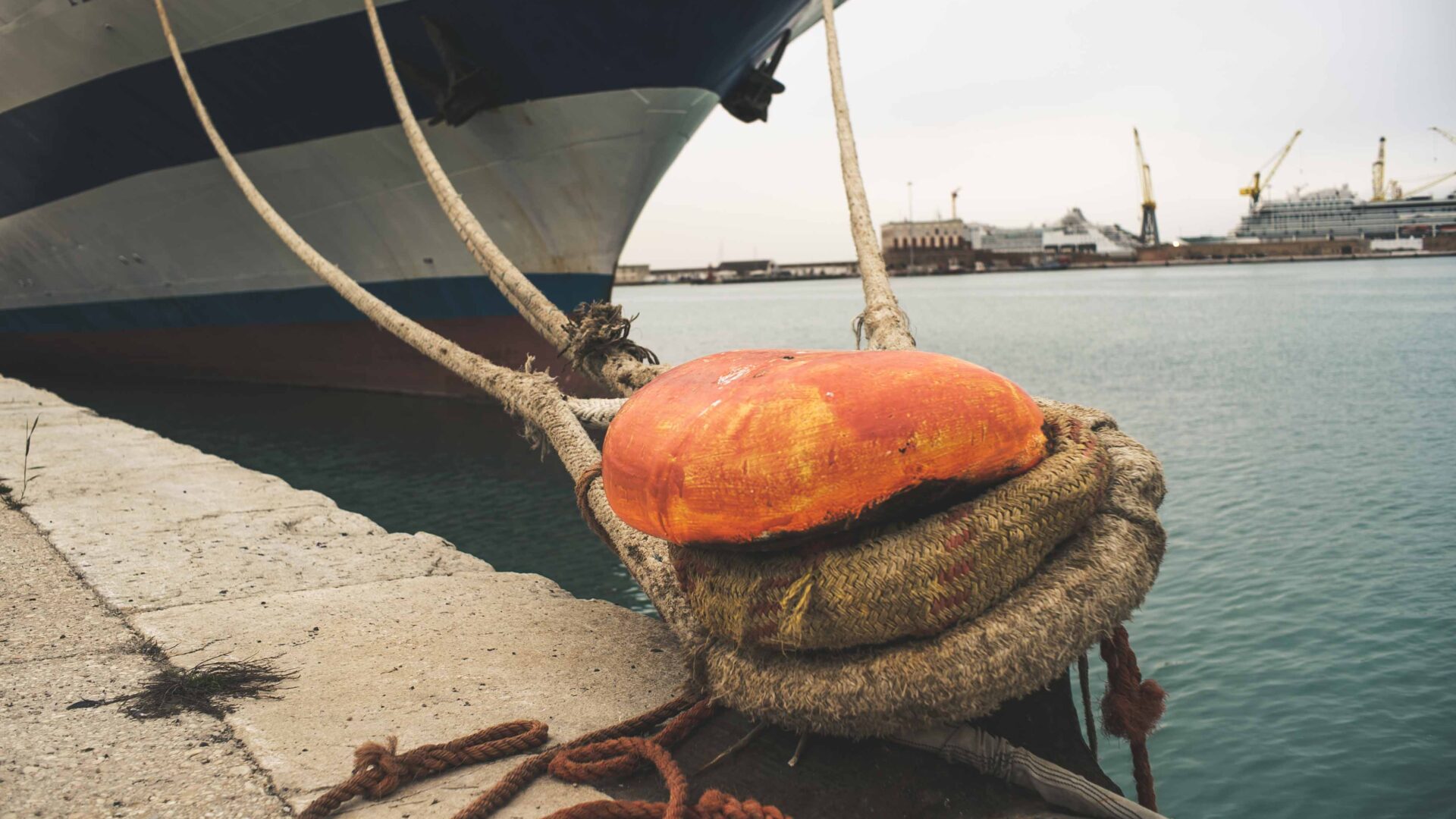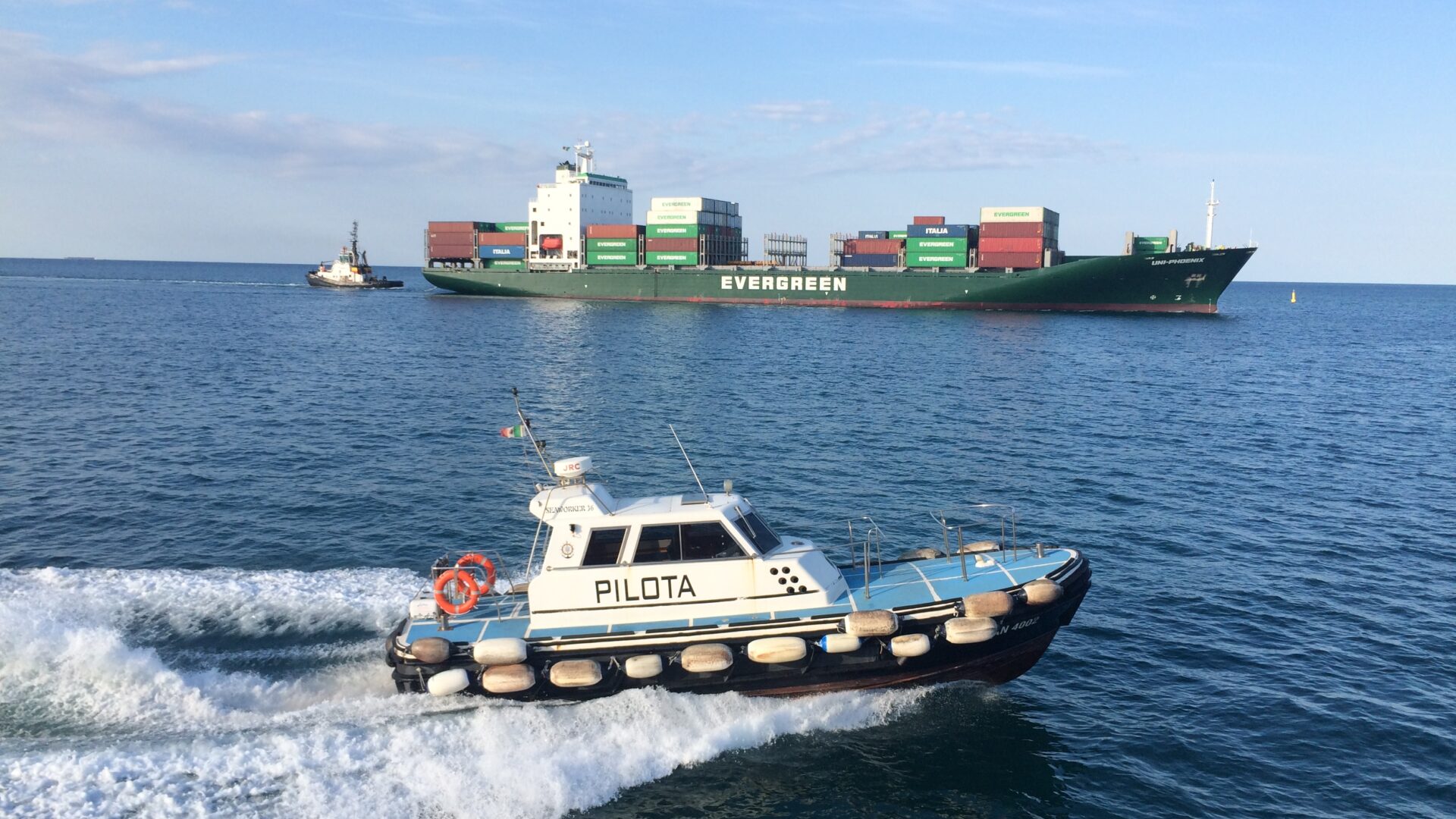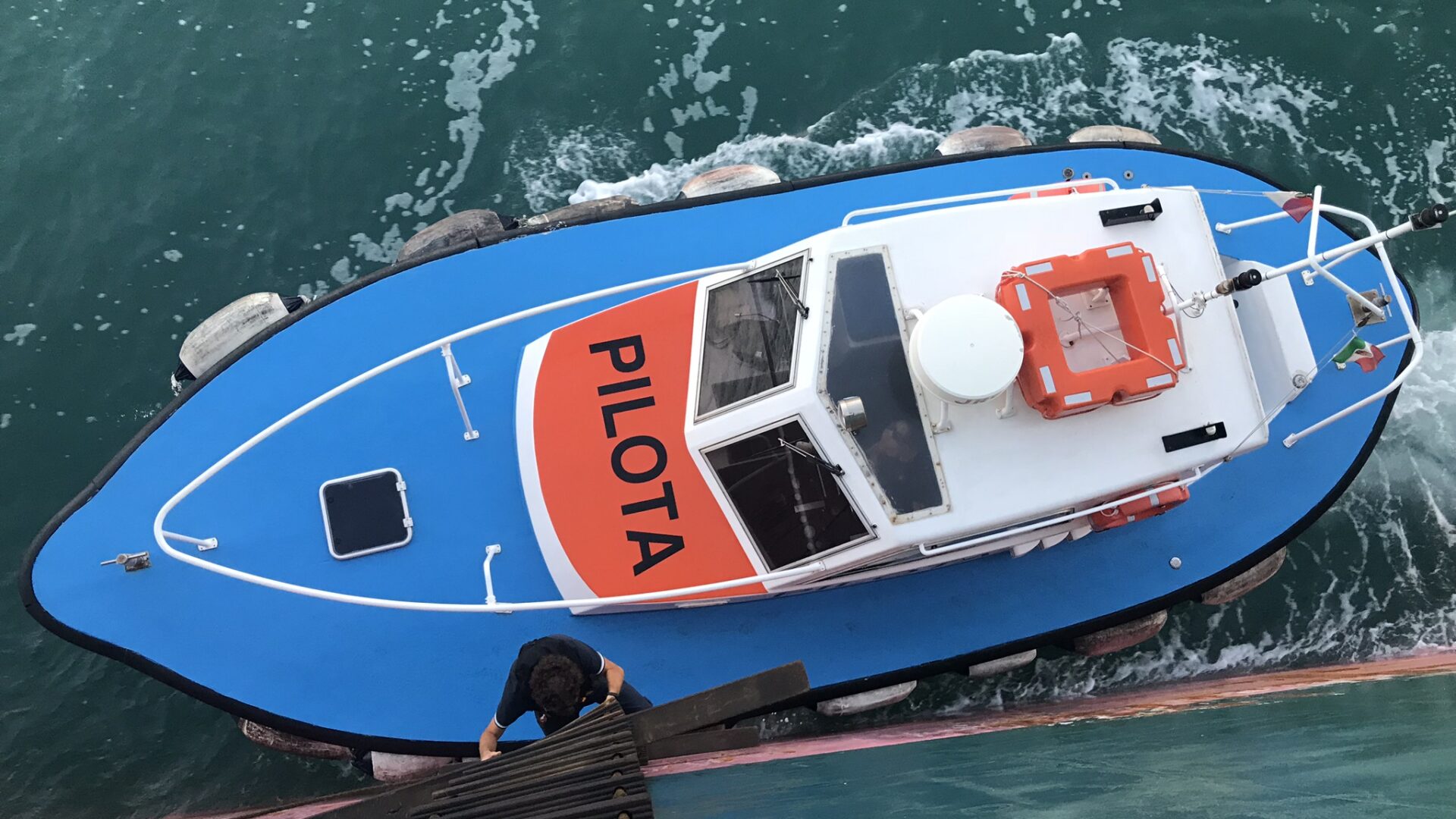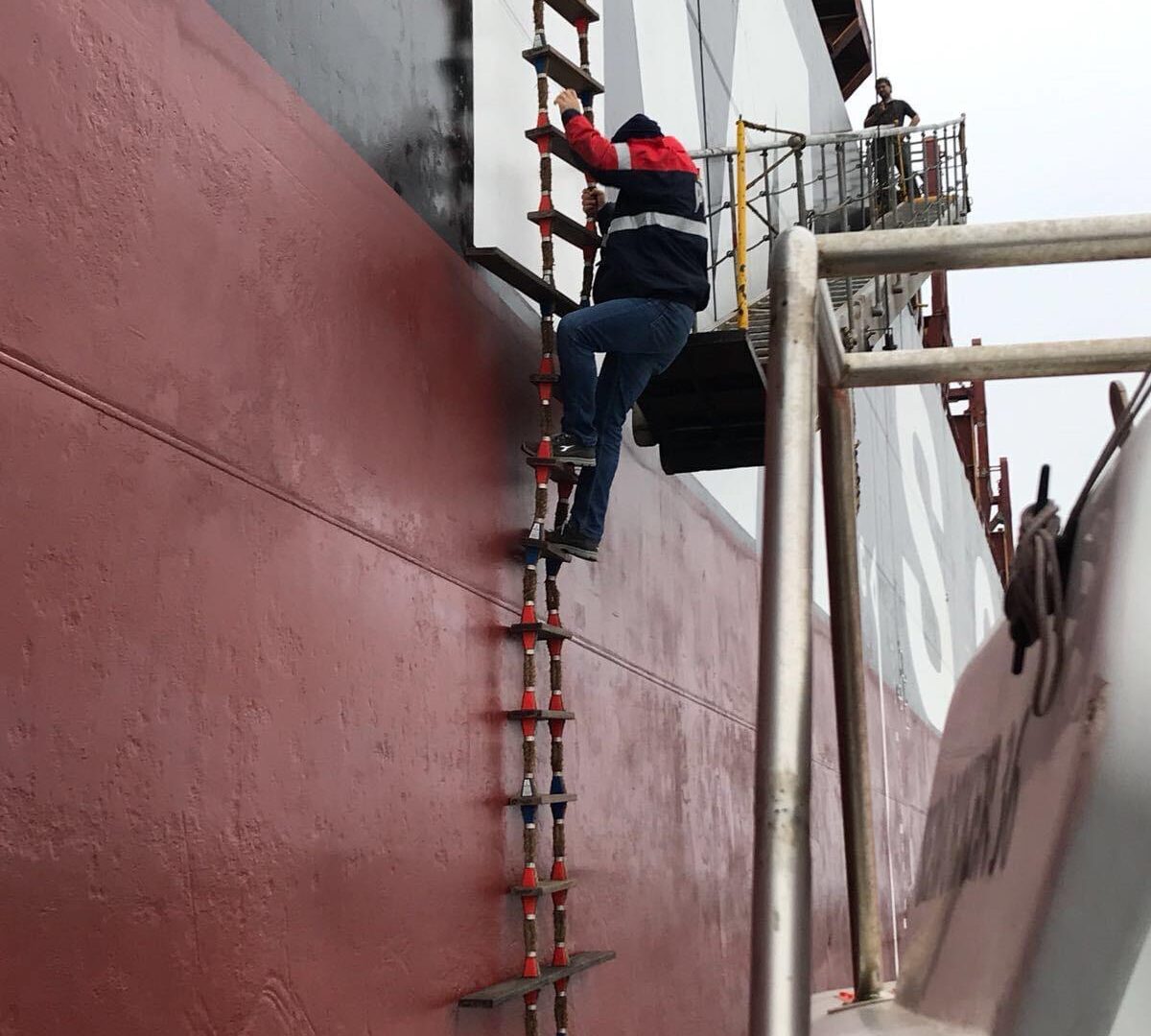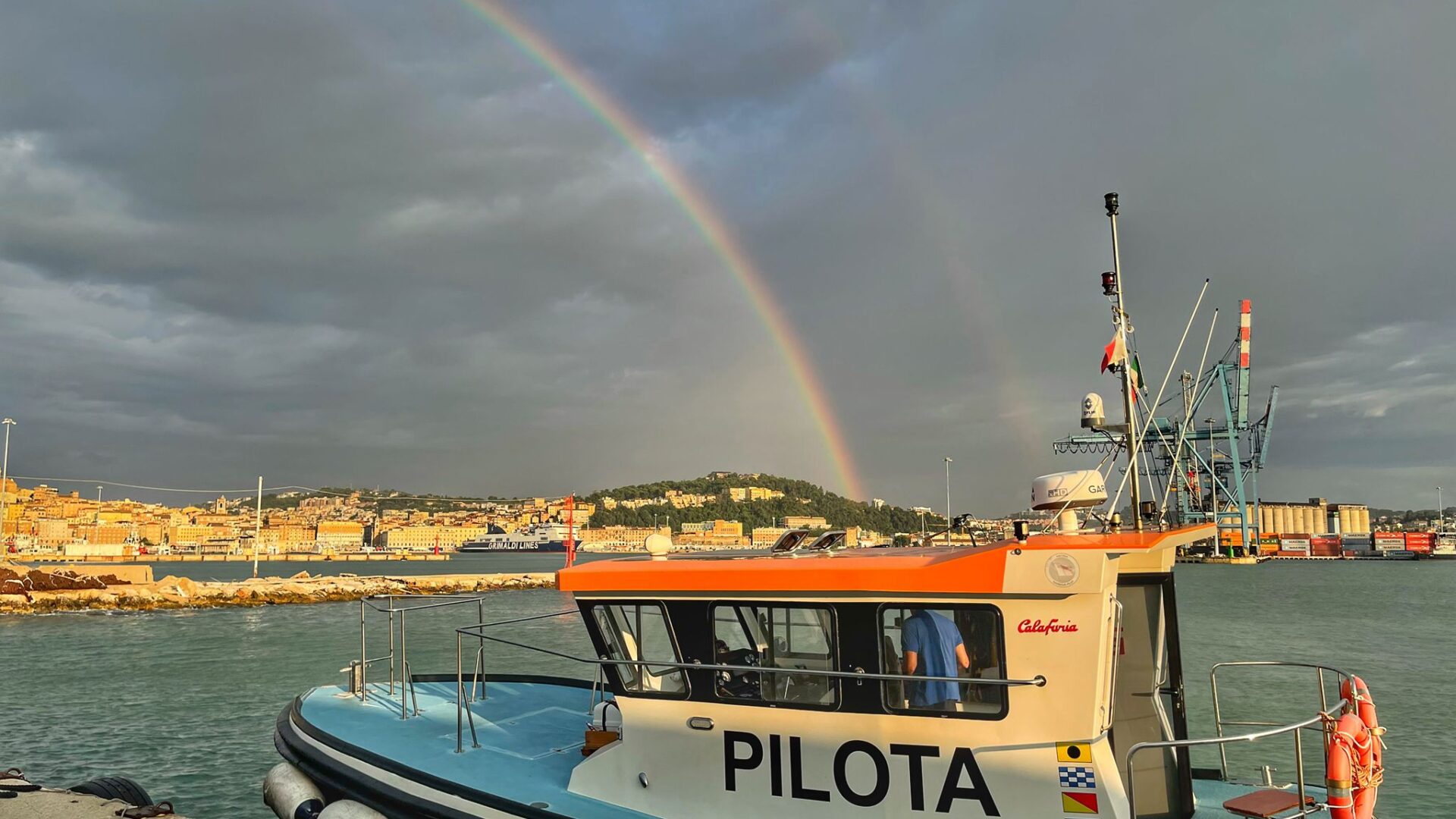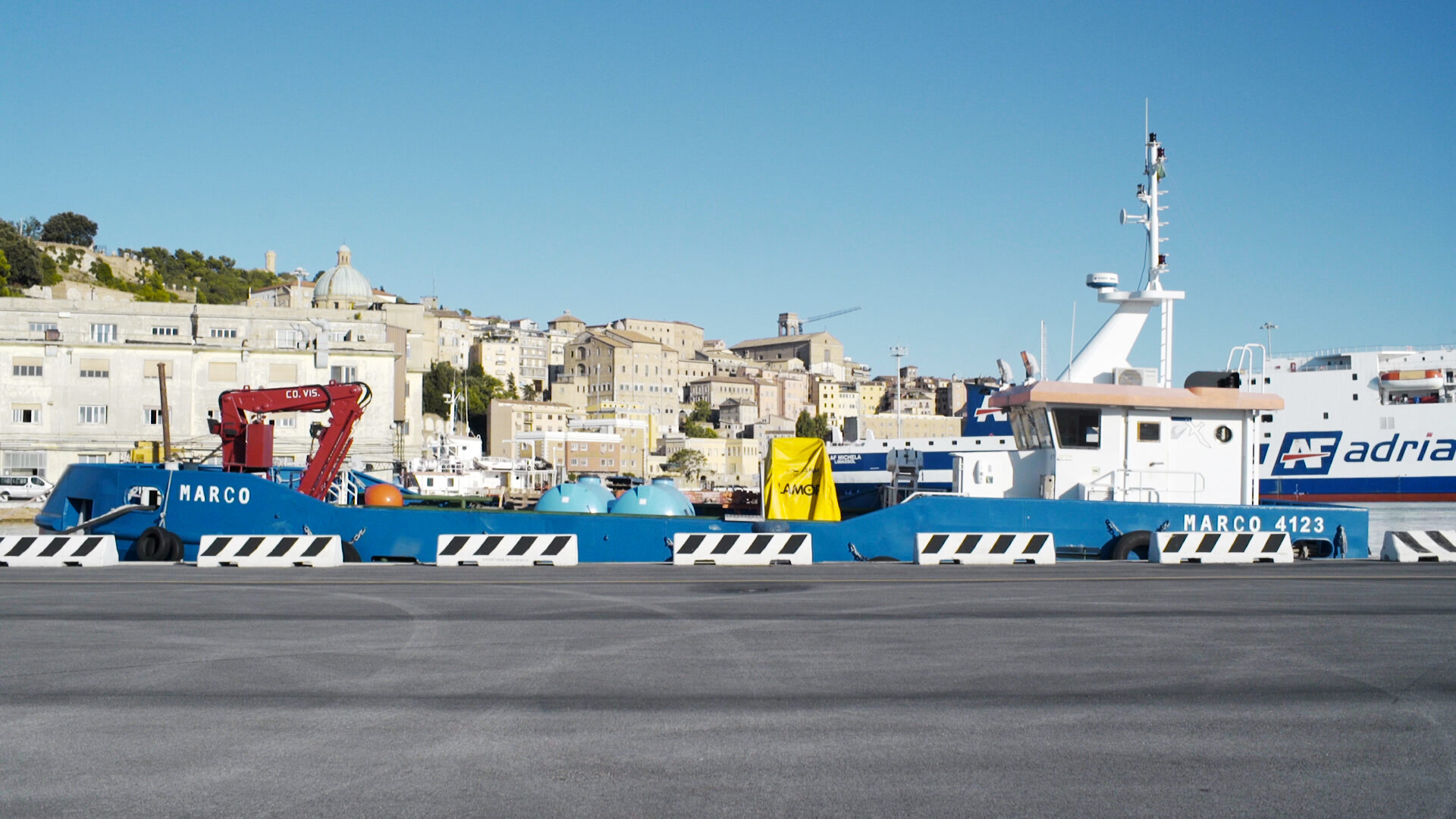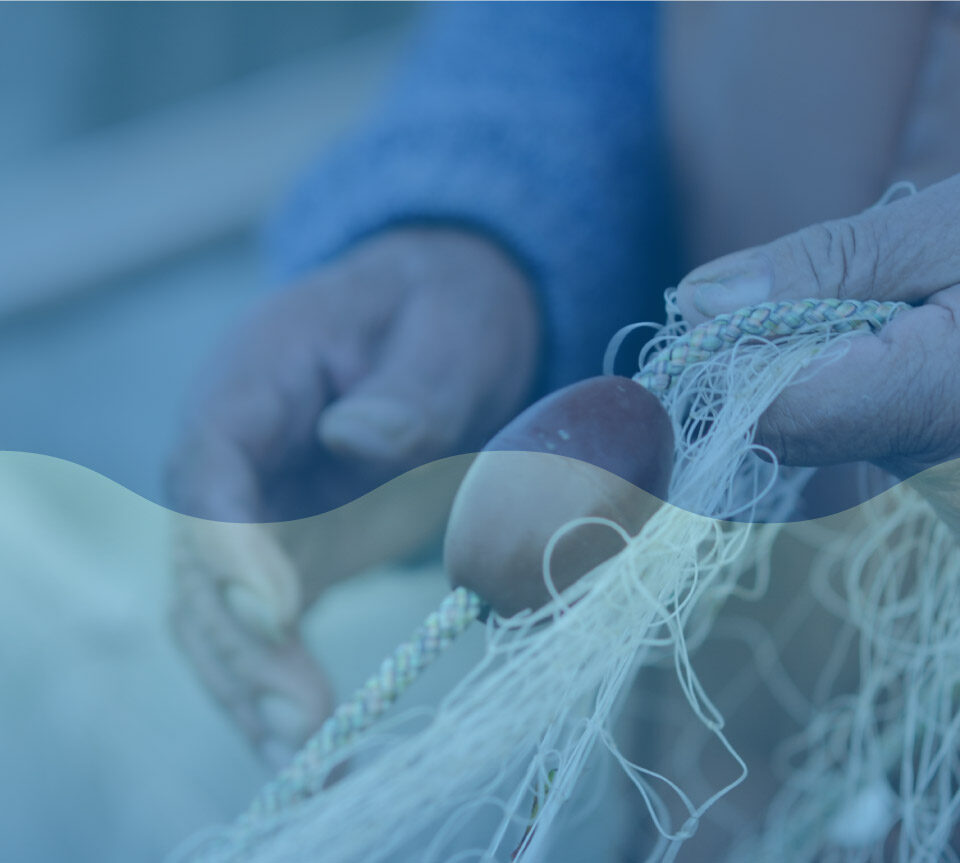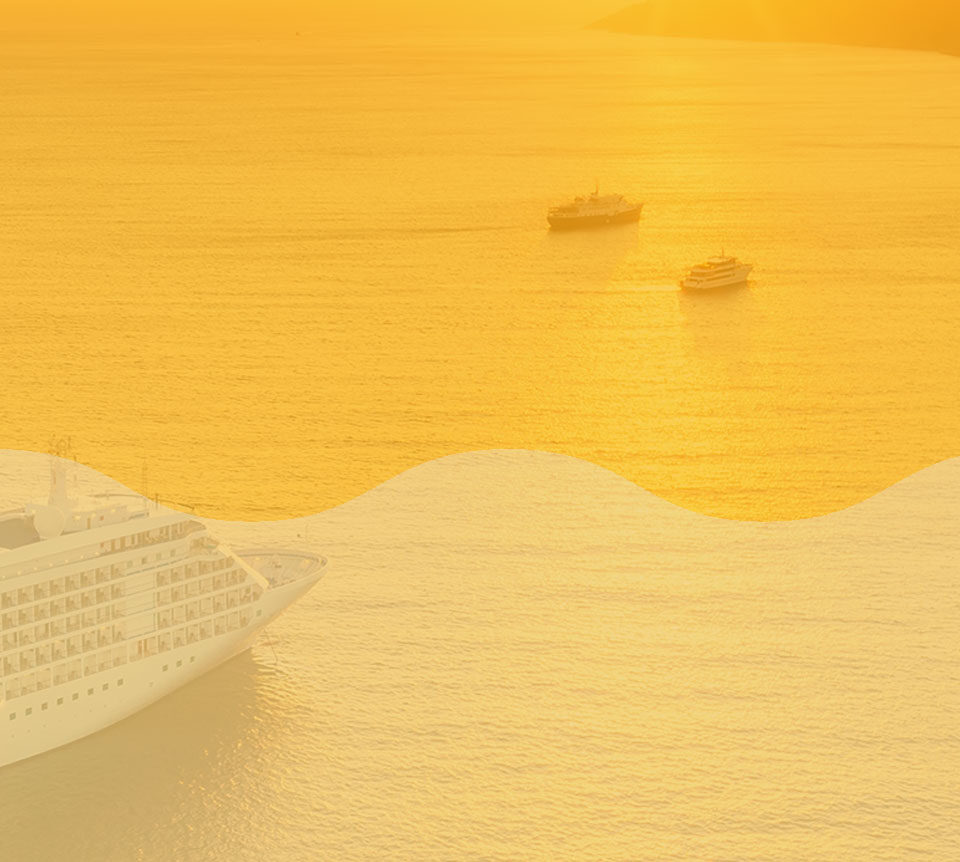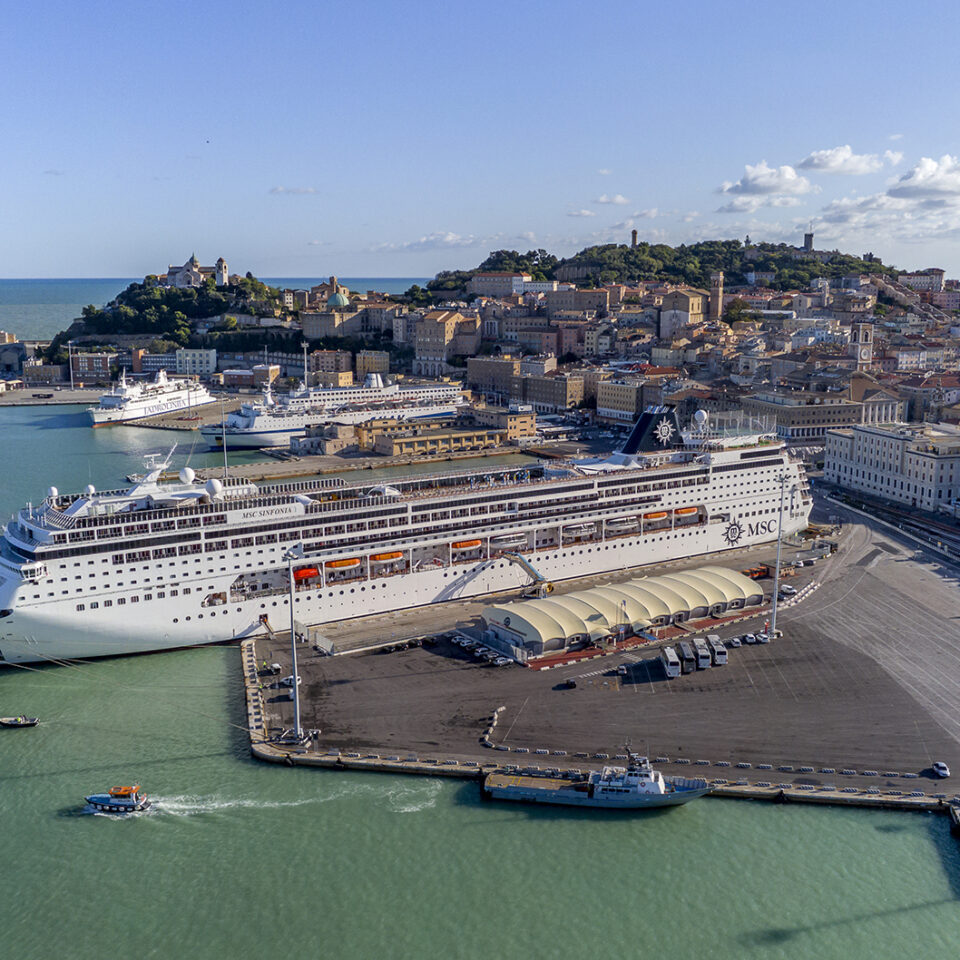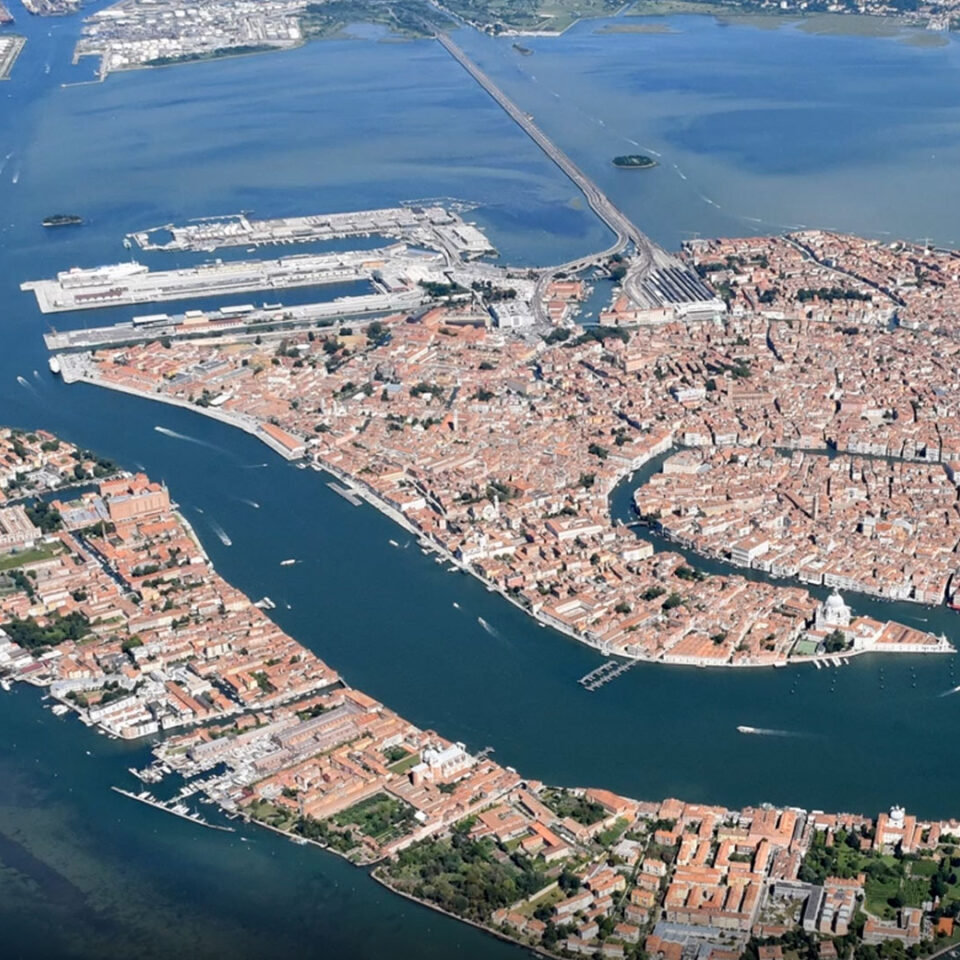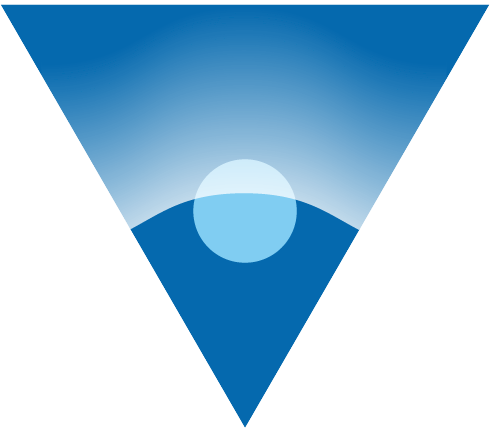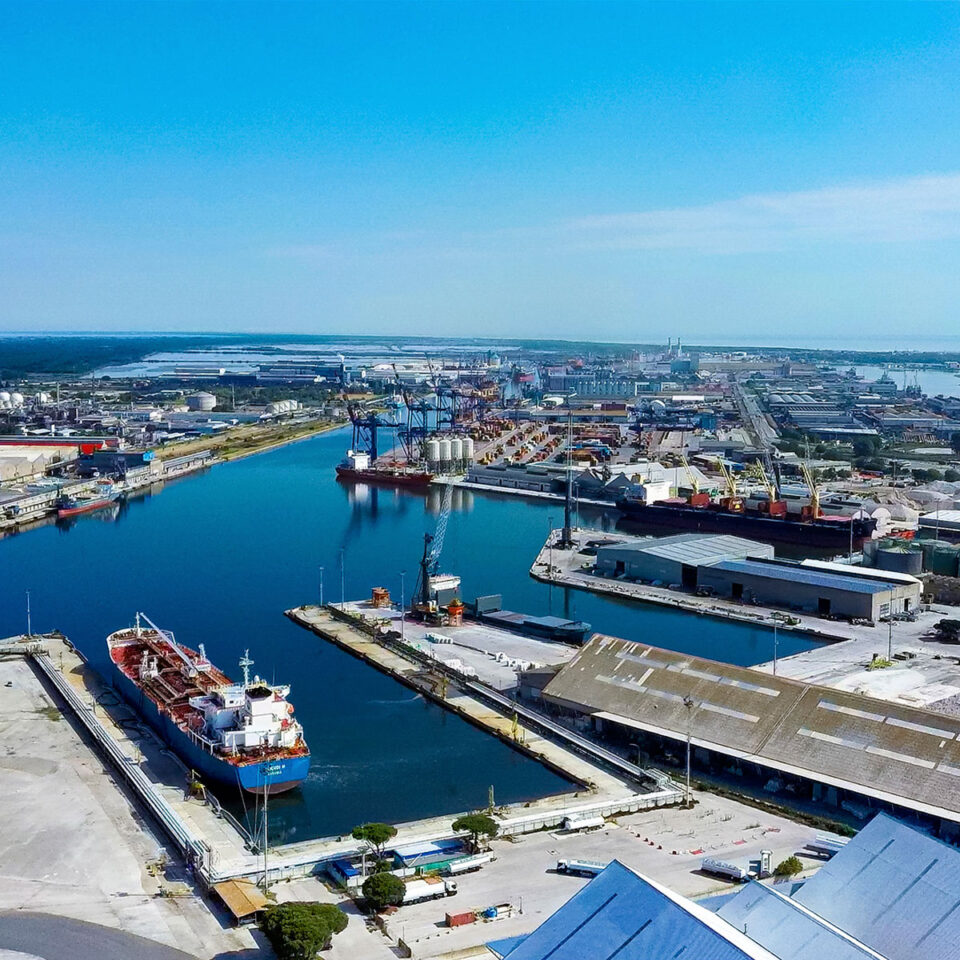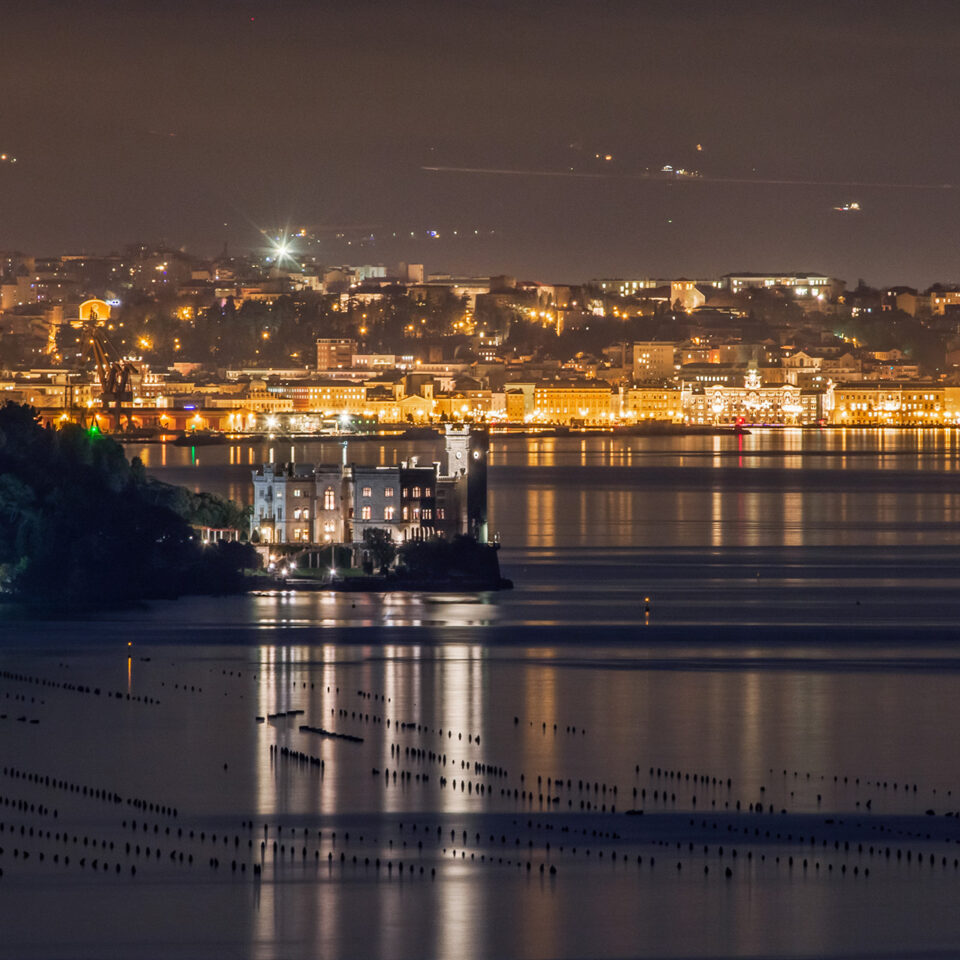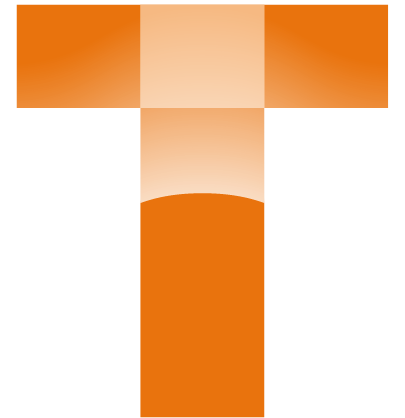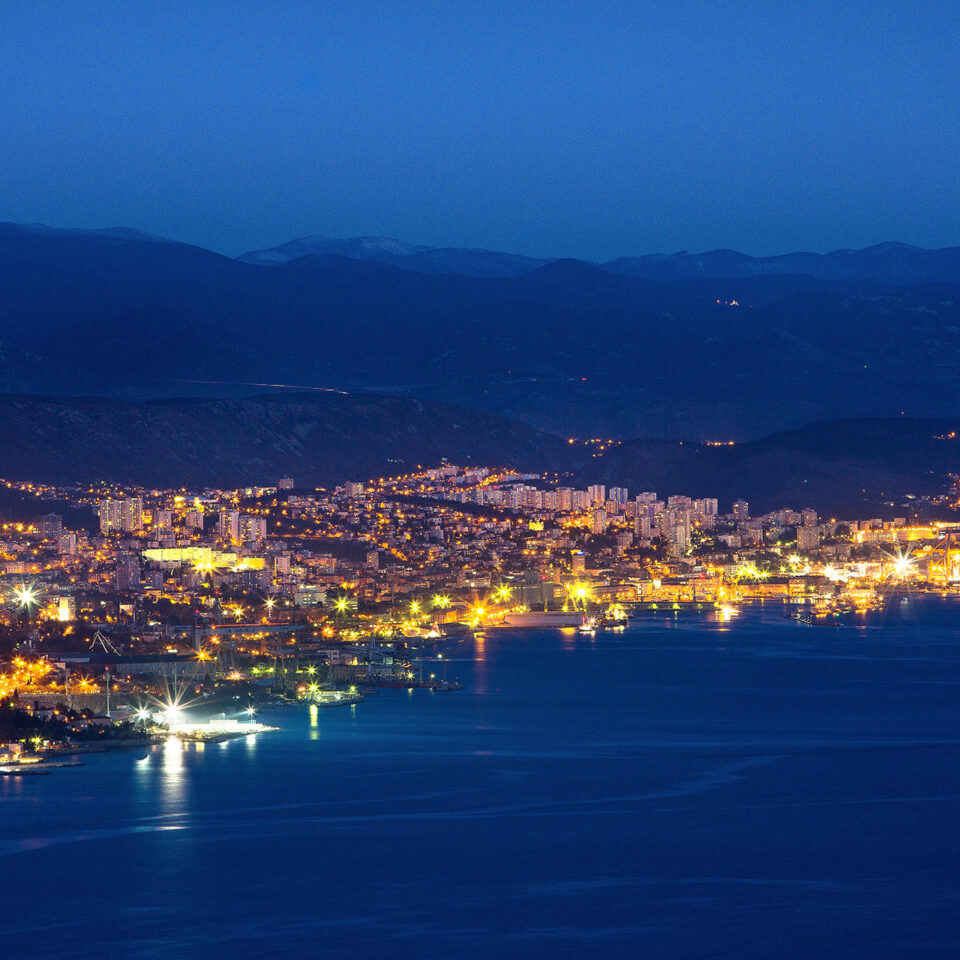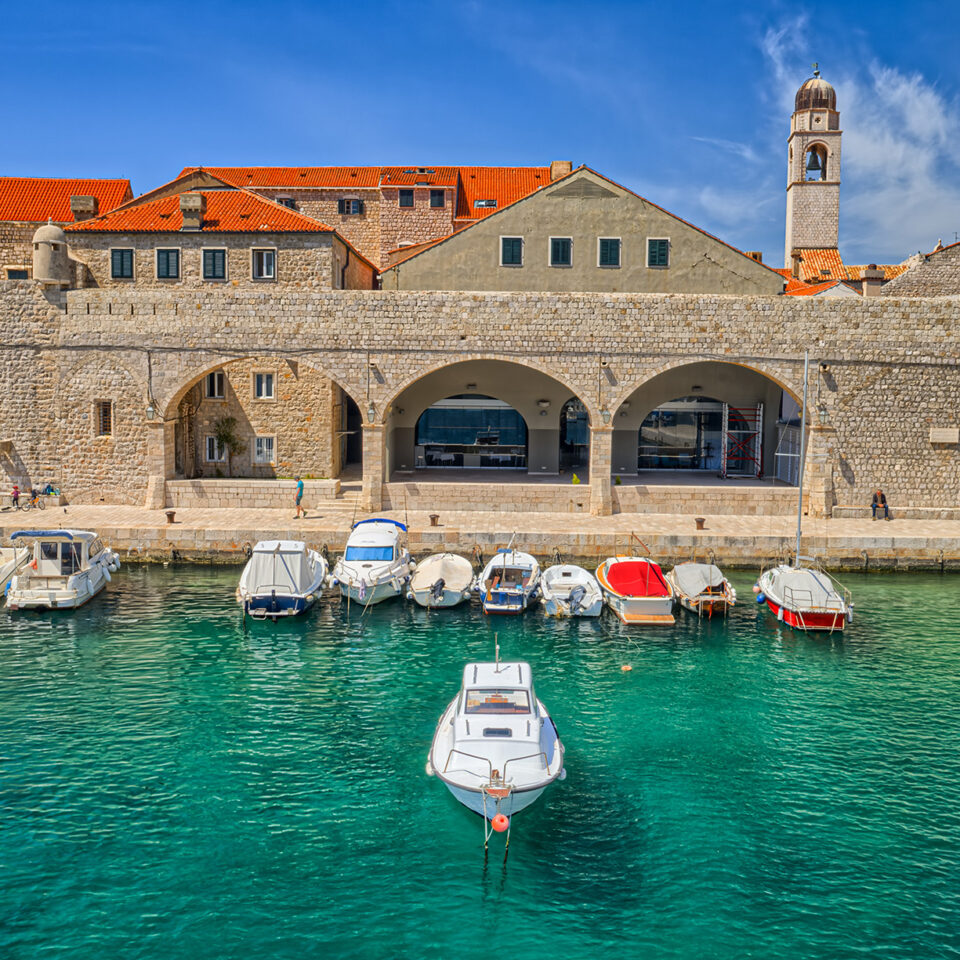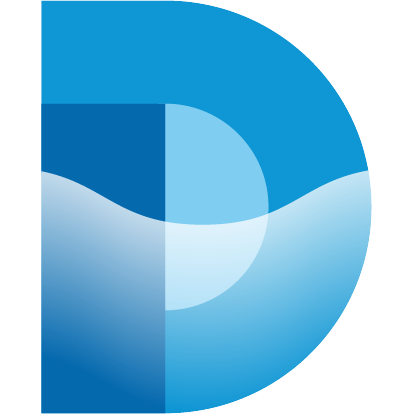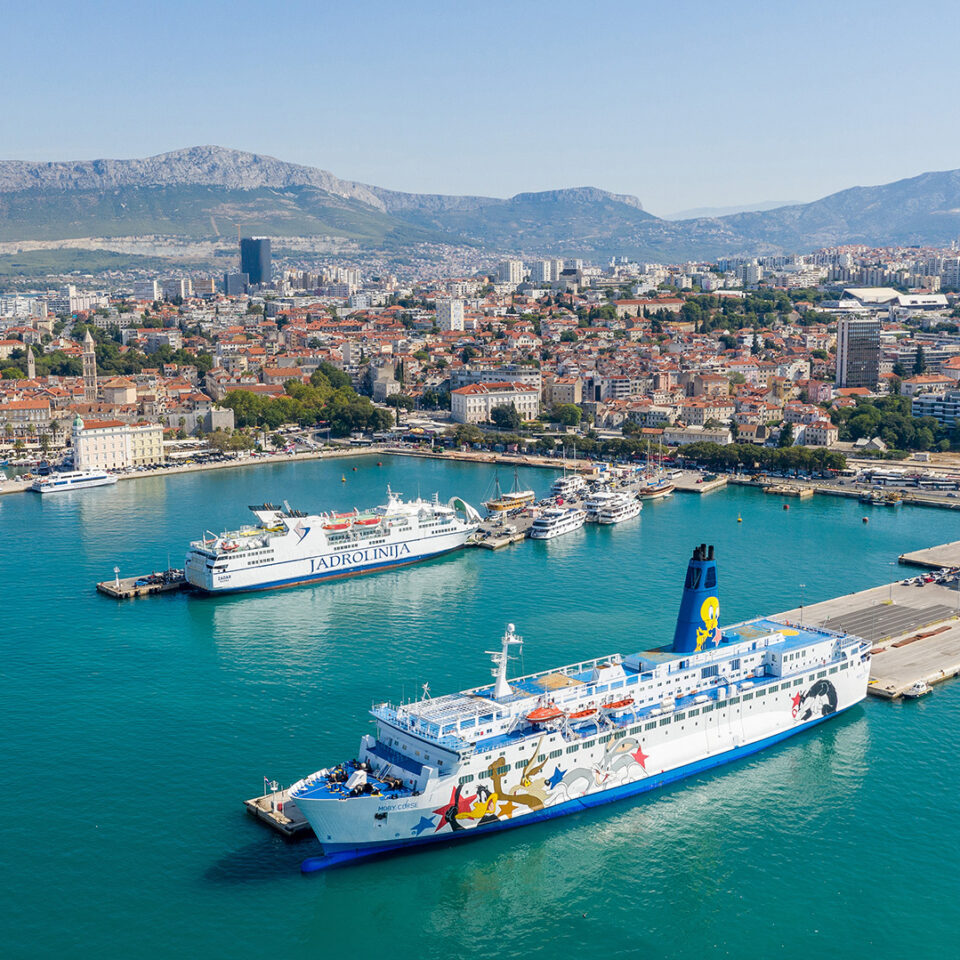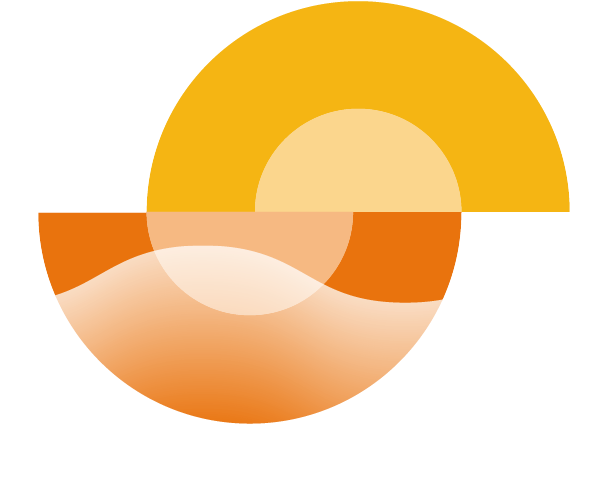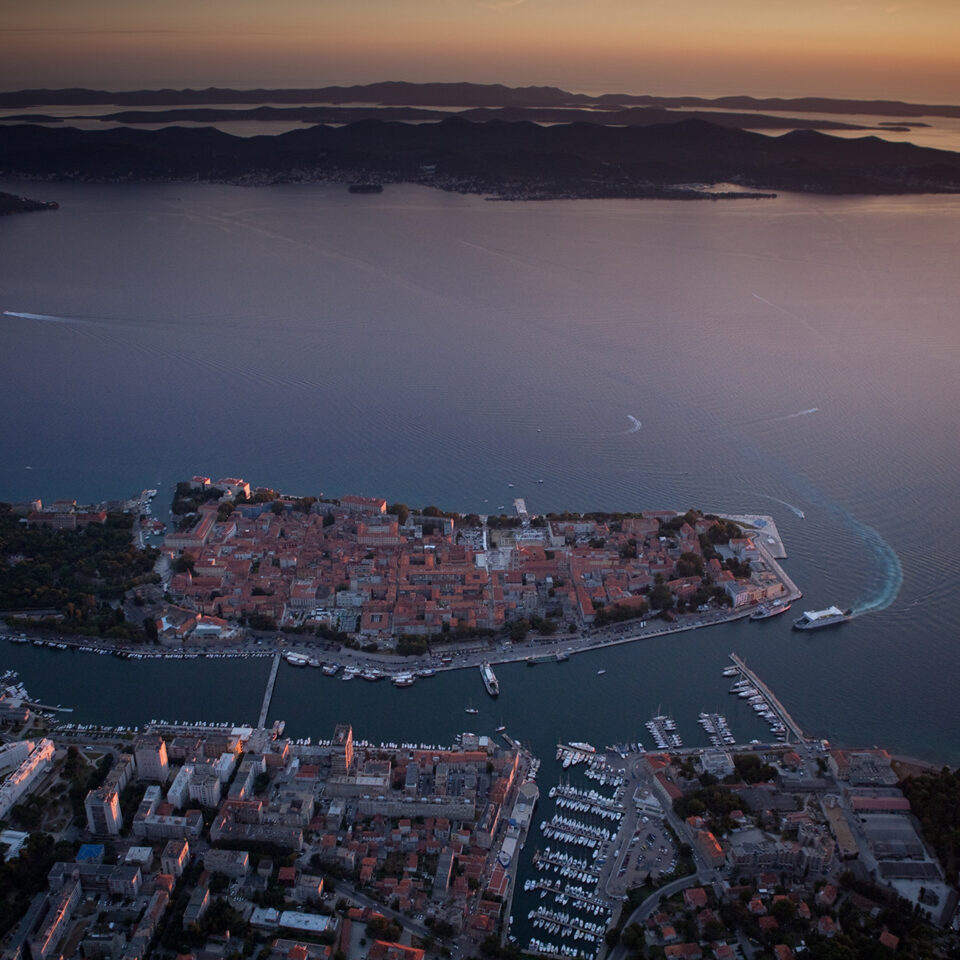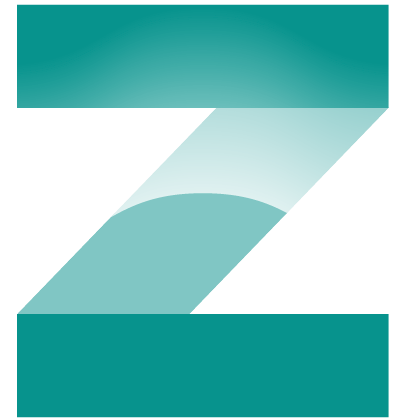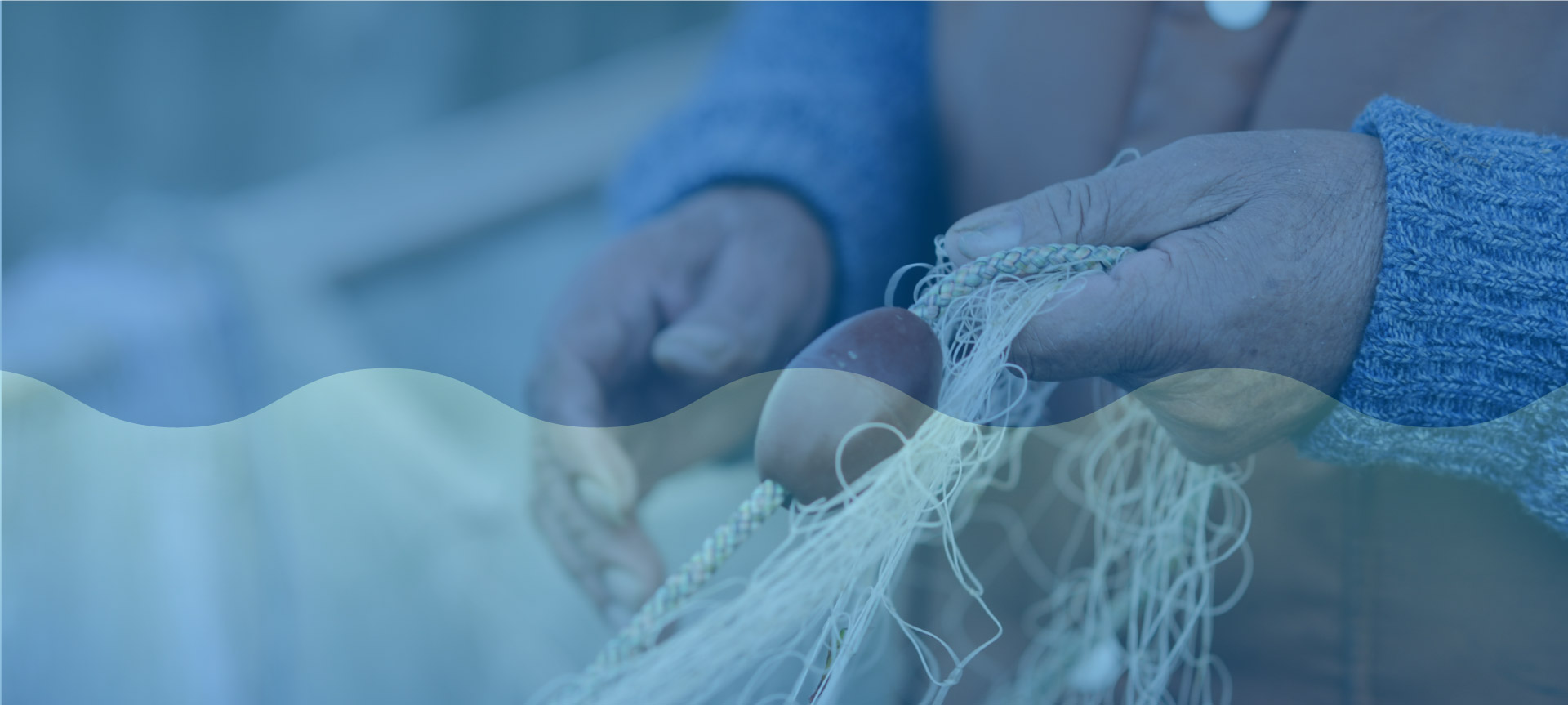
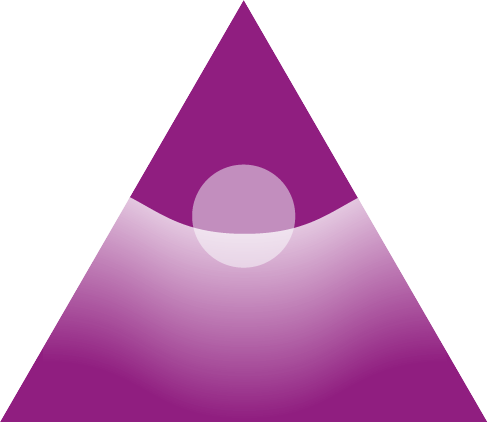
Technical-nautical services
A port of places, people, and work; a port of monuments and rituals, faces, stories, and tradition; a port of identities, languages, perspectives, and local memories. Commissioned by the Central Adriatic Port Authority, Gian Luca Favetto (Turin, 1957), Italian poet, journalist, writer, and playwright, offers us an author’s view of the Doric port. He writes for the newspaper Repubblica and is a longstanding voice of Radio Rai. He is the creator of the project Interferenze fra le città e gli uomini. Among his most celebrated works: Se dico radici dico storie, the poem collection Mappamondi e corsari, the audiobook I nomi fanno il mondo, the novel La vita non fa rumore, and the short story Un’estrema solitudine.
Text: Cristiana Colli
ANTONIO PIGNATARO, October 18, 1961
Line handler
By Gian Luca Favetto
Our motto is “Ultra Undam”: beyond the wave. Aside from grabbing the lines and fastening them to the bitts, the main feature of our job is ensuring safety when the ships come into port.
I come from Salento. Now, thanks to globalisation, there may not be all that much difference between Lecce and Milan, but in the Sixties it was quite evident and hard to endure. I wanted to leave, to grow. Staying at home meant being left behind. There were still latifundia where I came from. My future would have been my father’s past: working the land for someone else. The only chance to break free from this past was to emigrate: either you studied and found a job in the big industries of the North, or you enlisted. That was my view in the mid Seventies.
For me the sea meant summers with my grandfather, who was a fisherman. It gave me a sense of peace and freedom: I could daydream and make plans. Aside from the wind, the sea is the only force you can’t master. You have to respect it, that much I’ve learnt.
When I was sixteen, I was seduced by an advertisement for the Navy. I found it in a magazine, the Intrepido. It said: “Join the Navy, see the world.” I sent in my application and after two years training for the Coast Guard at the Maddalena, they sent me to Ancona. Here I turned eighteen, and I began to alternate shipboard jobs with port assignments.
In 1987 I got married, had three kids, and I could just picture it: my kids growing up while I was away at sea… Like my father, who emigrated to Switzerland and was always far away. So the harbourmaster/captain of the port suggested I take the exam to become a line handler. I took it in June 1999 and here I am. Proud and happy. Look at our pilot and line handler Tower: doesn’t it look like the deck of a ship standing firmly on dry land?
We experience the sea from the port, and in our line of work there’s always something new. It’s not static like the city, where that building or that monument will always be standing there. It’s a constant coming and going of ships, goods, and men. All operations, even the repetitive ones, are unique. You live in a world that is more fantastical, light, full of emotion.
However, I must say that in Ancona’s case the situation is surreal. There was never a real bonding between port and city. The city, the region’s administrative centre, flourished thanks to the service industry; while the port, with its exchange of goods and passengers, achieved an international standing. The fact is, Ancona has never had a maritime class, like Genoa, Naples or Bari. All it had was the fishing ships, but for a long time there was no cultural or professional exchange of arts and crafts. It was only during the last decade that Ancona began to draw closer to the world of the port. For a long time, carriers, shipping agents, customs officials, crane operators, fishermen, truck drivers, and railway workers were a nation apart, separate from the city. Fortunately, the trend has changed. Young people today are lucky they can enjoy this new relationship between the city and the port. It’s the necessary condition for the future of Ancona to be able to blossom.
AUGUSTO SELVA, January 10, 1963
Chief Port Pilot
By Gian Luca Favetto
Port pilots are councillors, auxiliaries, and advisors for the commanders of the ships entering and leaving the port. They can recommend the best access route, since they are well acquainted with the morphology, sea floor, currents, and winds. At the same time, pilots are an extension of the Coast Guard: as they are the first to board a ship when it comes into port, they are the first to find out what’s happening on board… mechanical failures, technical glitches… We are the first to take the necessary action and report to the Coast Guard, which is in charge of the port’s safety.
That’s what I do. It’s in line with family tradition. My grandfather Augusto was a sailor, a stoker. He spent his entire life on board merchant ships. During the war, the merchant ship he was working on was sunk off the coast of Eastern Africa. My father Carlo, instead, was a smelter for Cantieri Riuniti Alto Adriatico.
We’re from Trieste, from Rena Vecia, the old town. At a certain point we went to live right in front of the port. Meanwhile, my mother died two days after I was born. So I was entrusted to my aunt and uncle, who took me in as if I were their son. I called my aunt mom, while I only saw my father rarely, on Sundays. They loved me, but we were very poor. If there’s anything I can remember from those days, it’s that I was always hungry.
In 1970 my father remarried. I was seven at the time, and they began shuttling me back and forth between the two families. One day, our third-floor neighbour gave me the book Heart by De Amicis. I was eight and it was the first book I had ever read. I went by our neighbour’s every afternoon. He taught me about stamp collecting. Today it’s something you don’t think much about, but stamps help trigger your curiosity, they push you to study things more in depth, to become acquainted with places and historical events. I signed up at the library and began reading adventure novels: Emilio Salgari and Jules Verne. This, together with my hunger and my desire for redemption, led me to choose nautical school. I studied at night and practiced sports during the day. I played football, full-back or left winger.
I graduated from high school in 1982 and applied to the Naval Academy in Livorno. I was stationed in La Spezia on board the minehunter Loto. After my discharge, I began my career on board merchant ships. I travelled the world for twelve years. Meanwhile, I married Francesca, and Natalie, Natascia, and Margherita were born, so I decided to stop. I took the port pilot exam and have worked here in Ancona in this capacity since 1998.
I’m a seventh generation Triestan, and I am passionately attached to my city. But in time I have found I love this other city too, these people, this port… When I arrive from the highway and I see the lights of Ancona, and then the lights of the port, the same emotions surface as when I drive up the coast on my way back to Trieste. It’s a sort of longing, a sense of recognition. It’s like home. Now I am part of the port’s life, the life of this port, that is made of beautiful buildings and wonderful human beings.
ESTHER MORETTI, October 16, 1976
Boatwoman
By Gian Luca Favetto
I went to the nautical school, in that wonderful building overlooking the port. In my days, the gate was kept closed, but I climbed over the wall, passed by the place where the Trattoria da Irma was… It’s still there, on Lungomare Vanvitelli… I went to see if my dad, who worked at the port, could drive me home or if I had to catch the bus. Sometimes I waited for him…
In the beginning my dad was an offshore diver. Thanks to this job, he travelled the world. He loved and enjoyed working as a diver. When he came home, he told us about the beauty of the sea, and he taught us to always respect it, to never underestimate the danger, never be overconfident: always pay the utmost attention, because the sea is the sea. My grandfather on my mother’s side was a sailor too. My life was evidently meant to be intertwined with the sea. I have always found it extremely fascinating.
I was born in Scotland, in the Orkney Islands, in the northernmost reaches of Great Britain. It was here that my father, who was working on the construction of an oil terminal in the North Sea, met my mother, who was in university and working in a pub during the summer. It was love at first sight, and then I was born, the first of three siblings. I had a happy childhood, close to nature. Then, when I was 8, we moved to Italy, to Agugliano, 15 km from Ancona. My first memory is of my mother asking me if I wanted to go to school full time or not, if I wanted to go Saturdays too. I chose full time. There were 9 kids in my class.
There was a time I wanted to be a diver, like my dad. And before that I wanted to be a flight attendant. But I also wanted to be on the sea, on a ship – I wanted to travel. So I left as soon as I got my diploma, in 1995. I was finally travelling. For one year I was a cadet, then I took the exam. In early 1997 I became an aspiring master mariner unlimited, and I applied to the Orkney ferry company. After eight months in the North Sea, my father, who had become a partner in a company of boatmen, asked me to come work with him here in Ancona, on an old boat called Simone. That was October 1997, and I have never stopped since then.
We carry people, goods, supplies, and materials from the wharf to the ships at anchor in the roadstead. We carry anything the ship might need. Even a change of crew. And their waste. We collect the ship’s solid and liquid waste. And we deal with countering pollution. We step in when there’s a leak or a spill, we contain it and we pump it out.
We have three boats. My favourite, my jewel, bears the name of a seagull from the northern seas who can navigate bad weather unperturbed. Its name is Fulmar, which is now the name of our company, too. And then there’s Diomedea, which is also the name of a sea bird, the great albatross. Our third boat, instead, bears my dad’s name: Marco.
I spend my time on the sea. On ships, too. But I don’t travel. I chose family; I chose to bring up my girls. That’s why I stayed in the port, which is the most beautiful spot from which to watch the sunset.

